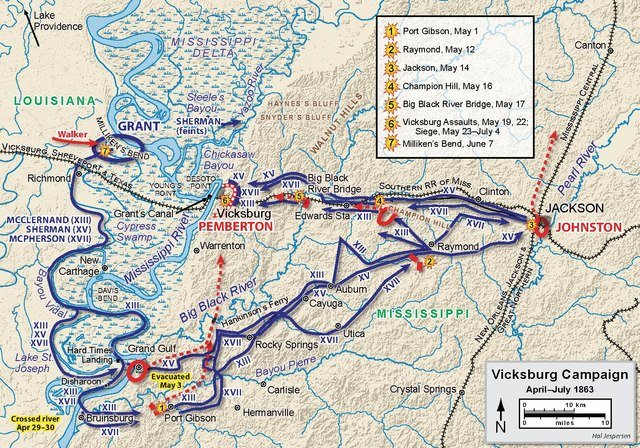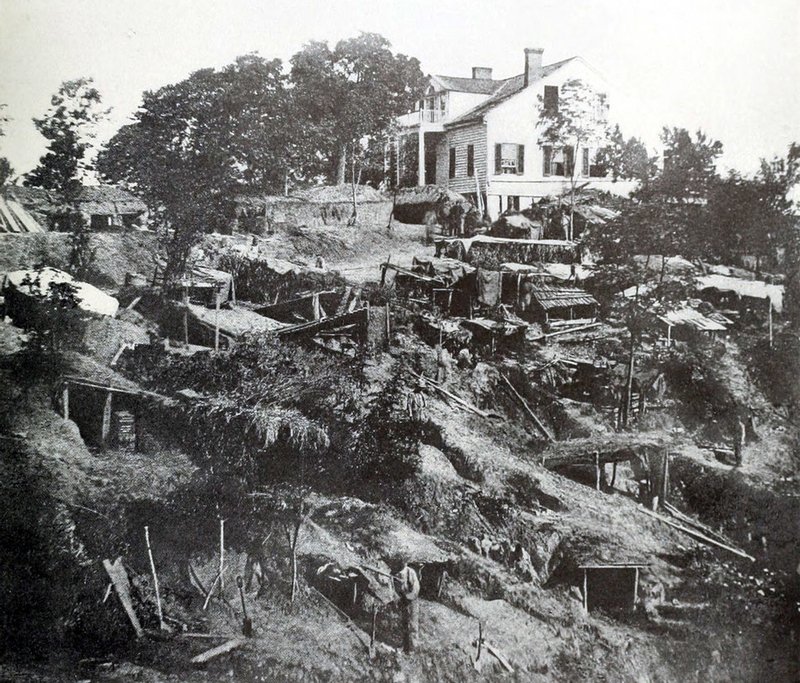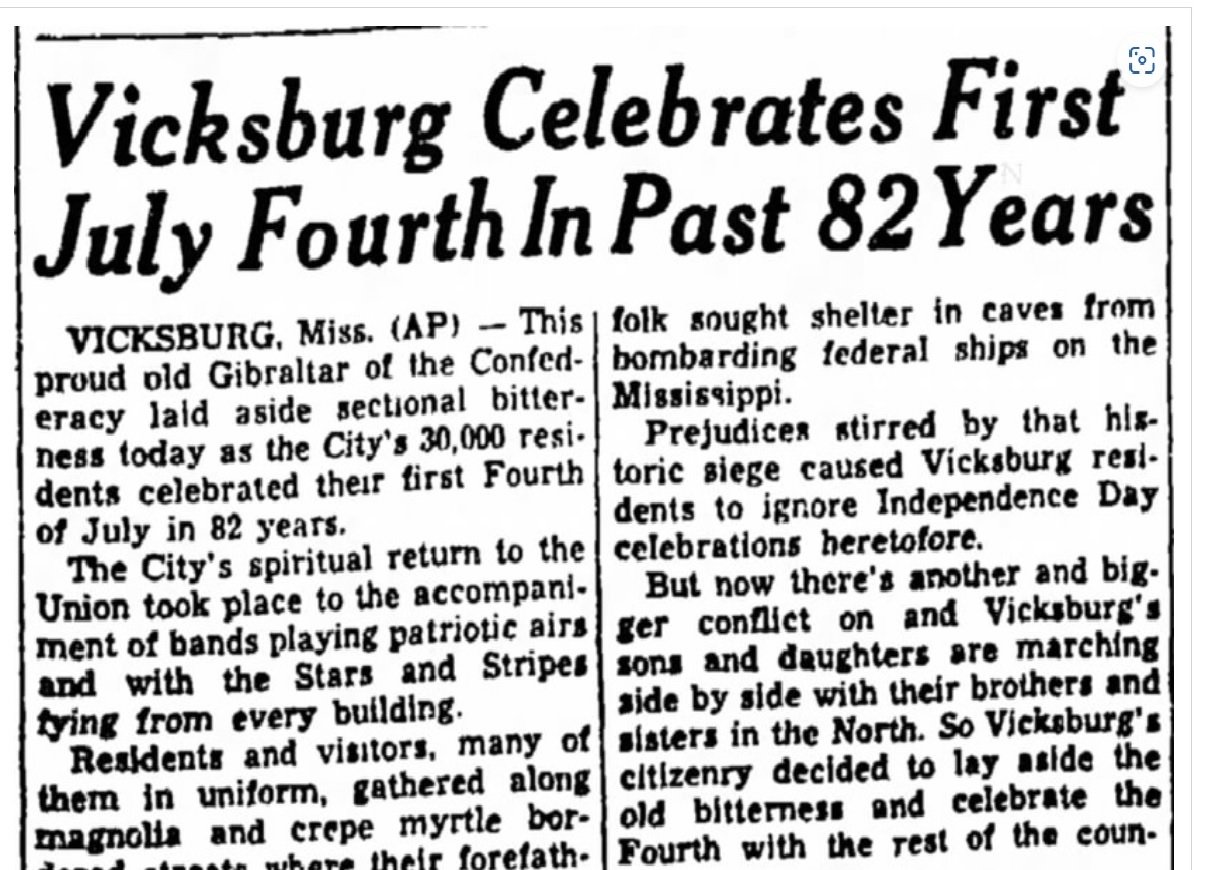July 4, 1863
Background
We celebrate July 4 marking the birth of the United States in 1776. Eighty-Seven years later (or four score and seven years in Lincoln’s eloquent phrase from the Gettysburg Address), the country was in the midst of the Civil War between North and South. This was the deadliest war in American history, with over 600,000 deaths. Relative to the population, the Civil War death rate was over 60 times worse than the Vietnam War.
Two major military campaigns culminated in July 1863 – Gettysburg and Vicksburg.
Gettysburg
Union military strategy in the east was to defeat the Southern army and capture Richmond, the capital. In May 1863, General Lee’s outnumbered army won a major victory over the Union army at Chancellorsville.
After this victory, General Lee decided to invade the North. He hoped a victory on Northern soil would force the North to start peace negotiations. The Union Army shadowed General Lee keeping between his army and Washington DC. Lee’s army was marching on separate roads when he heard the Union army was nearby. He ordered his army to consolidate at a local town where the roads meet – Gettysburg. Lee also believed fresh supplies were stockpiled there.
The battle started on July 1, 1863, when Confederate troops fought a smaller group of Union soldiers. The Northerners retreated through the town and fortified Cemetery Hill, south of the town. The rest of both armies arrived and prepared to fight.
On July 2, 1863, Lee attempted to move around the Union position, attacking their flanks. After heavy fighting, the Union still held its positions.
On July 3, 1863, Lee sought a decisive outcome, by a mass attack against the Union center. Known as ‘Pickett’s Charge,’ after Confederate General George Pickett, the attack was repulsed with heavy casualties.
On July 4, 1863, Lee started to withdraw, returning to the South with his depleted army.
Vicksburg
At the start of the Civil War in 1861, the Union developed the ‘Anaconda’ plan. The plan was to ‘strangle’ the South by blocking its seaports and to cut the South in half by controlling the Mississippi River. Also, Confederate control of the Mississippi blocked Union farmers and industry from shipping their goods to markets via the river. President Lincoln described the importance of Vicksburg: “…Vicksburg is the key! The war can never be brought to a close until that key is in our pocket. We can take all the northern ports of the Confederacy, and they can defy us from Vicksburg."
During 1862, the Union captured New Orleans at the southern end of the river, and Memphis at the northern side. This left Vicksburg as the only remaining Southern bastion on the river.
Starting in December 1862, Grant’s forces attempted to capture Vicksburg. Several attempts to take the city failed. Finally in May 1863, his forces defeated the Confederate Army which then retreated into Vicksburg. When Grant’s direct assaults failed, he laid siege to the city. After six weeks, the Confederates surrendered, on July, 4 1863. Some historians have described Vicksburg as Grant’s finest campaign—"imaginative, audacious, relentless, and a masterpiece of maneuver warfare.”
The date may have been accidental, although Confederate General Pemberton later argued he thought he could get better terms on such an important U.S. holiday. Instead of unconditional surrender, Grant offered parole to the defenders of Vicksburg.
Aftermath
These two victories, Gettysburg and Vicksburg, gave the Union much to celebrate on July 4, 1863. However, the war lasted almost another two years before the Confederate surrender at Appomattox.
Some residents and city of Vicksburg were so upset by the surrender on that date, that they declined to celebrate the fourth of July until eighty years later, after World War II.
After leading the United States to victory in World War II, General Eisenhower visited Vicksburg on July 4, 1947, stimulating the city to once again officially celebrate the holiday. A marker commemorates his visit, noting the absence of celebration since 1863.




